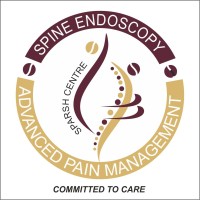Avascular Necrosis (AVN) is a condition that affects the bones, particularly the hip, where a reduction in blood supply causes the bone tissue to die. This leads to pain, stiffness, and potentially, joint collapse. While surgery, such as hip replacement, is often the ultimate solution, nonoperative treatment can be highly effective in managing the condition and delaying surgery, allowing patients to maintain mobility and improve their quality of life.
What is Avascular Necrosis?
Avascular Necrosis occurs when blood flow to a bone is disrupted, causing the bone to lose its vital nutrients and oxygen. In the hip, this typically affects the femoral head, leading to bone death. Over time, the bone weakens, and the joint may collapse. Causes of AVN include trauma, prolonged steroid use, excessive alcohol consumption, and certain medical conditions like lupus or sickle cell disease. Early intervention is key to preventing the need for surgery.
Nonoperative Treatments for Hip AVN
While surgery may be required if the condition progresses, nonoperative treatments can often slow its progression and reduce symptoms, providing significant relief. Here’s how nonoperative treatments can help:
1. Pain Management
Pain relief is the first step in managing AVN. Nonsteroidal anti-inflammatory drugs (NSAIDs) are commonly used to reduce inflammation and alleviate pain. For more severe pain, stronger medications or corticosteroid injections may be prescribed to manage symptoms.
2. Physical Therapy
Physical therapy is essential for strengthening the muscles around the hip joint, which helps relieve stress on the affected bone. Low-impact exercises, like swimming or cycling, can keep the joint mobile while avoiding additional stress. Therapy also improves flexibility and reduces stiffness.
3. Core Decompression
Core decompression is a minimally invasive procedure where a small hole is drilled into the bone to reduce pressure and restore blood flow. This technique is often effective in the early stages of AVN and can delay the need for a hip replacement.
4. Stem Cell Therapy
Although still being studied, stem cell therapy shows promise in treating AVN. The idea is to inject stem cells into the affected area to regenerate healthy bone tissue and restore blood flow. While more research is needed, stem cell injections have provided some patients with relief from symptoms.
5. Lifestyle Changes
Maintaining a healthy weight and avoiding high-impact activities can prevent further deterioration of the hip joint. Lifestyle changes, such as using assistive devices like crutches, can also help reduce pressure on the affected hip.
Nonoperative Treatment in Indore for Hip AVN
For those dealing with hip AVN, nonoperative treatment in Indore for hip AVN offers various options to help manage the condition. The combination of medication, physical therapy, and minimally invasive techniques can provide relief and delay surgery. Consulting a healthcare provider in Indore can help identify the best treatment plan tailored to your needs.
Avascular Necrosis of the hip is a serious condition, but nonoperative treatments can significantly delay or avoid the need for surgery. Pain management, physical therapy, core decompression, and lifestyle changes all play a role in managing AVN effectively. If you’re looking for nonoperative treatment in Indore for hip AVN, consult with a healthcare provider to discuss the best approach for your specific situation. With the right treatment, you can improve your quality of life and keep surgery at bay for as long as possible.

